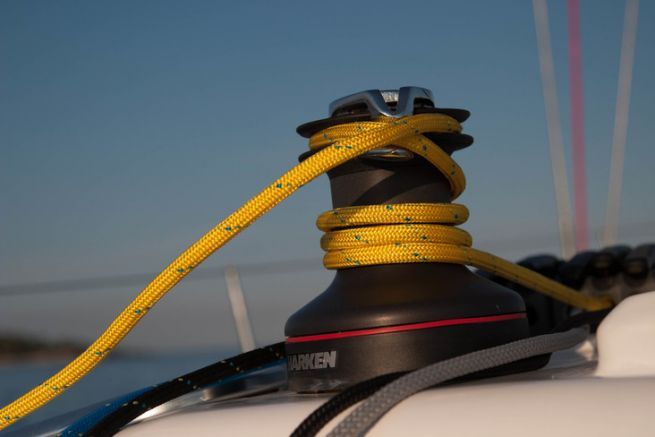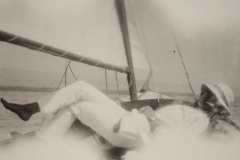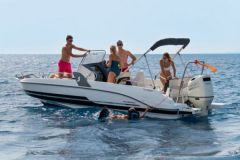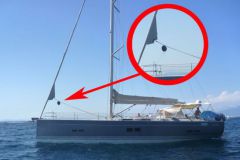You rent your boat, whether it is a sailboat or a motorboat. As mentioned in our articles on this subject, you are clear with your obligations both tax than legal it's all right. You are now considering renting yourself, as captain or skipper, thus offering your tenants to make the most of their time on the water and, let's face it, you trust yourself more personally to handle this boat than unknown tenants. An excellent idea, but here again, everything must be done according to the rules of law!
What kind of rental?

First of all, let's set the record straight. During this presence, will you be the pilot of the rented boat with the boat ( thus offering a clearly defined service provision ) or simple accompanying person without any contractual obligation?
If the nuance is tenuous, it is formalized simply by the presence or not of your performance as captain on the contract on the one hand, by the transfer or not of the responsibility of skipper to the tenant or not. If both conditions are met ( your presence on board and your retention of the title of captain ), then you are a professional skipper. Otherwise, you are only one of the passengers on the ship, you do not receive remuneration for this presence and any other of the passengers ( as long as he's a holder of the appropriate securities.. ) will be able to take the helm, without any authority on your part.
Training obligations of the professional skipper
You are therefore the skipper, that is to say, the person who is responsible for navigation. You no longer have a Pleasure Craft, but a Commercial Use Vessel (CUV). The simple possession of a Pleasure Craft Licence ( open sea or not ) is no longer sufficient. Until 2017, things were simple; all that was required to practice professionally was a Master 200 certificate. Since then, while an official title is still required, its nature will vary depending on the vessel's tonnage and sailing distance.
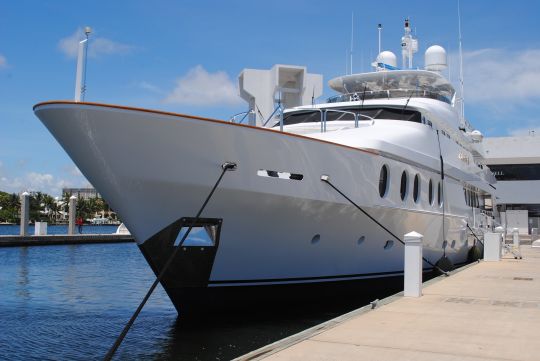
In most cases, the Brevet d'Aptitude à la Conduite des Petits Navires (BRACPN) will allow you to pilot vessels à engine of less than 12 metres and carrying less than 12 passengers. Your sailing area will extend a maximum of 6 miles from the point of departure and with a propulsion power of less than 250 kw (335 hp). This training lasts a minimum of 107 hours and includes the Basic Safety Training Certificate ( CFBS E, to be renewed every 5 years and including 27 hours of sailing time ), a navigation a module interview and one last module regulation . Finally, the CRR (Radiotelephone Operator's Restricted Certificate) has to be passed. The only prerequisite here is a seafarer's medical examination.
The Brevet d'Aptitude à la Conduite de Petits Vaisseaux à Voile (BRACPNV) will allow you to pilot sailing vessels of less than 12 metres and carrying less than 12 passengers. Your sailing area will extend a maximum of 6 miles from the point of departure and you will have to sail during the day.
The conditions for obtaining the licence are different in the two cases. The Restricted Certificate of Competency for the Operation of Small Vessels is conditional upon obtaining a pleasure craft licence and, where applicable, a probationary test ( Theoretical test based on a multiple-choice questionnaire and practical test according to the criteria of the decree of 28 September 2007 ) and is acquired by validation of a maritime regulation and maritime safety module. It is acquired by validation of a navigation module at management level, maintenance and repair at management level, maritime regulations and maritime safety.
The certificate of competency for the operation of small sailing vessels is subject to the award of a Youth and Sport Diploma (Brevet of sports educator option sailing, certificate of specialization cruise, state diploma sports improvement mention sailing .. ) and is acquired by validation of a maritime regulation and maritime safety module followed by 6 months of service at sea.
Legal obligations of the skipper
As for any professional, the skipper must be free of the taxes, levies and social charges that are incumbent on a remunerated practice.

In any case, as private individuals are not, as such, authorised to issue invoices, the master who has become a professional will have to opt for a tax regime, in the same way as the lessor, depending on the income generated by his practice. In any case, the micro-business option is impossible, as the skipper ( the pilot of the vessel within the meaning of French law ) is a professional of the sea and, as such, is affiliated with the Enim ( National Institution for the Invalids of the Navy ), which is not possible under the self-employed status.
It will therefore be necessary for the pilot to set up a business, in the form and status that suits him or her, in order to operate. In this respect, he will have to free himself from all the obligations incumbent on all companies, from taking out insurance for the exercise of this activity to the declaration and payment of social security contributions to the URSSAF.
Skipper's insurance obligations

It's not just a matter of a tax or social security system for the pilot who does things within the law. Indeed, when he becomes a professional, his personal insurance ( Civil liability, insurance of his ship .. ) become null and void and our skipper will have to subscribe at least a professional civil liability that will prevent him from damages caused to third parties:
- Personal injury:
Case law holds that the skipper was personally at fault for not clearly asking his passengers to wear the safety equipment ( vest, harness.. ) during dangerous navigation. Again, a skipper will be responsible for the death of a passenger who is struck by the boat's boom!
The skipper, in case of damage, will be responsible for all his passengers' belongings on board the vessel, laptop, mobile phone, GPS, VHF... Similarly, if you are piloting a third party's boat, you carry this responsibility on this boat!
- Consequential consequential damages also known as "Loss of use"
The skipper will be responsible for compensating the passenger who, through his own fault, has lost a mobile phone or, if he is piloting a third party's boat, for compensating the owner for the impossibility of renting the boat due to damage for which he is responsible.
Penal obligations of the skipper
While the examples may seem exaggerated, it should be remembered that a skipper may find himself personally liable, for example, if one of the passengers tries to commit suicide on board and succeeds in killing himself on another attempt on board. In March 1992, the Criminal Court of Cassation ruled that "... the skipper is not personally liable for the death of his passengers" culpable negligence in the failure to supervise a crew member who attempted suicide on board and then again and permanently committed suicide before arriving at the port of destination; and ", then addressing the notion of at least involuntary manslaughter.
Similarly, a pilot may be subject to criminal liability in the event of an accident due to excessive ship speed, poor route selection or lack of precaution ( wearing of vests, deck storage.. ).
Paid driver or escort, an important choice
All of these points should make you weigh the pros and cons in your plan to make you pay to steer. If the few hundred or thousand possible euros can motivate you, highlighting them with the extent of the trouble that this illegal exercise could cause should remind you that boating is above all a moment of relaxation and sharing passion.
Sometimes, registering as a passenger during a rental by simply proposing to the tenants to accompany them, voluntarily and without commitment, to simply advise them, will free you from all the points mentioned above on the one hand, and on the other hand, will allow you to share your passion with the freedom of the passionate, without the grip of the god of money!
